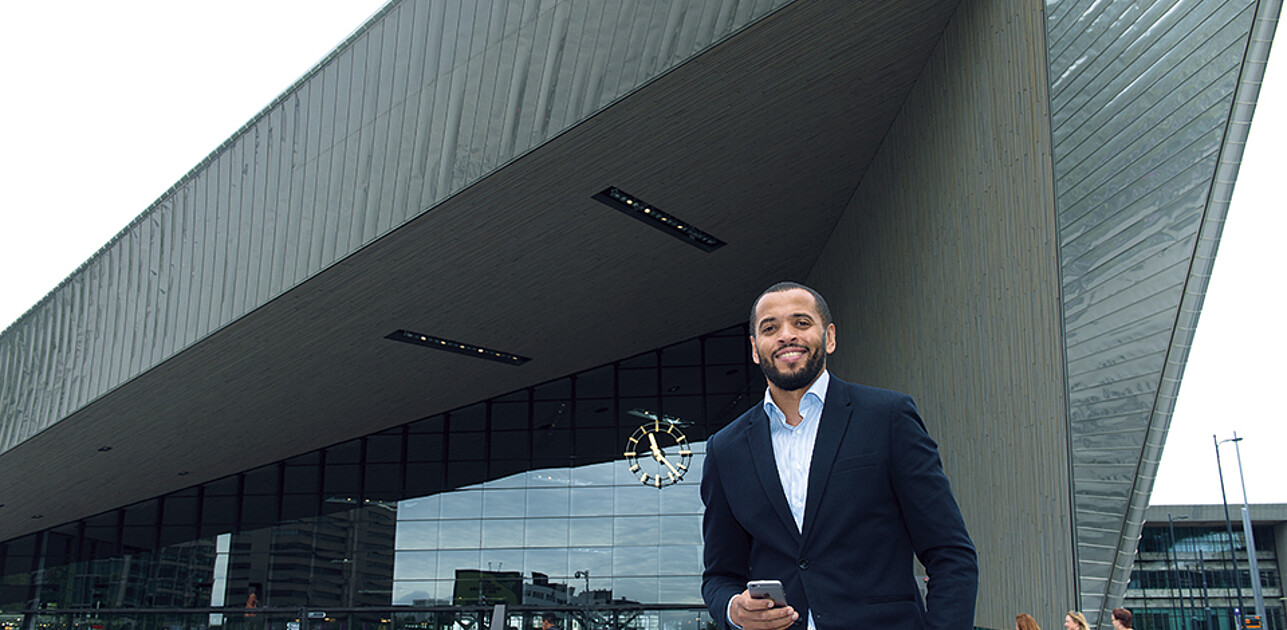

Artificial Intelligence will without any doubt change the way we will do business in future. As a matter of fact, it is already changing many businesses that we are involved in today. But what is needed to make Artificial Intelligence a valuable part of the way we do business ourselves? Many experts believe that successful Artificial Intelligence applications hinge on the so-called b-smact technologies (Blockchain, Social media, Mobile use, Analytics, Cloud and Things-on-the-internet or better known as IoT). The fuelling component of those technologies is Big Data.
This course is offered by Rotterdam School of Management b.v.. For more information about the legal structure of Rotterdam School of Management, Erasmus University, visit this page.
This insight will require a whole new set of business skills. Understanding and working with new technologies for big data collection, analysis and prediction will not create only huge opportunities for business, but also ethical, legal, privacy and technical issues concerning every part of the organisation. It will influence customer relationships, redefines how firms develop new products and services, changes how operations are organised and managed, improves demand and supply networks, and provides the basis for new business models. It will demand a data driven focus of everyone involved.
Organisations transforming towards becoming data-driven are guided and supported by the blended ‘Leadership Challenges with Data Analytics’ programme at RSM Executive Education. It connects professionals in technical- and methodology-oriented data science with professionals engaged in business analytics, links them to best business practices, and actively involves senior executives. This programme has been developed and organised by the Erasmus Centre for Data Analytics with a wide range of partners from the industry.
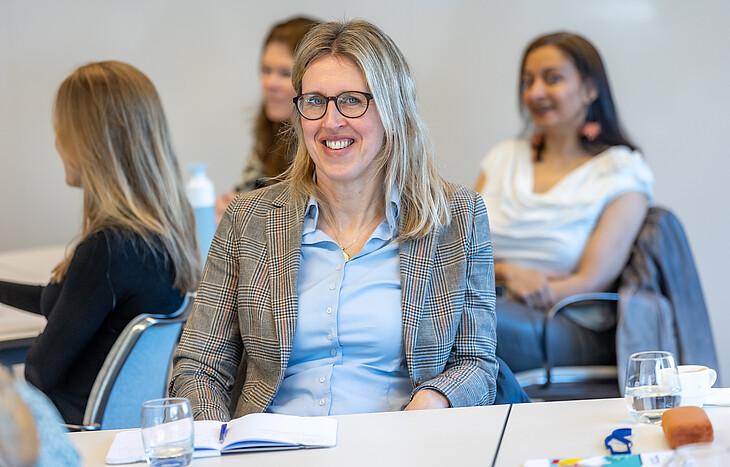
The course is divided into four blocks to allow the application of the concepts learned.
Two days of preparation sessions, during which each participating company is expected to bring at least one case study to which the teams can apply the concepts they have learned. During this part of the programme, you will focus on the strategic importance of data-driven organisations, terminology, leadership challenges and readiness of companies, including their enterprise architecture and digitised platform. It includes case studies from other companies and short presentations from participating companies.
Two days including one evening session during which you explore the basic technology challenges of a data-driven company; technologies for analysis, prediction and visualisation. The evening session will focus on exchanging information and insights between the participants including a get to know each other social event with an academic touch.
Two days including one evening session during which you explore the basic management challenges of data-driven company; business cases, legal and privacy issues, change management and implementation. The evening session will focus on the company use case, consulting with both academic- and business coaches.
Two days for fine tuning the gained knowledge and turn it into applicable wisdom. Discuss challenges you have experienced in transforming your business and the implementation of your proposals. In the afternoon of the second day each team’s case study results will be presented to an expert panel and discussed in the class.
Faculty members of RSM and ESE combine impeccable academic credentials with a thorough knowledge of business practice; they are listed below. Selected for their ability and experience in executive teaching, they will draw on their research and knowledge to deliver a unique learning experience. Occasionally we may substitute other faculty members according to the content of the programme and their availability.
At RSM, we strongly believe in not only sharing knowledge about digital transformation, but generating new knowledge and valuable insights through the facilitation of applied research. The Erasmus Centre for Data Analytics (ECDA) a flagship centre for cross-disciplinary insight on data, AI, digitalisation, and immersive technology. ECDA is devoted to the development and application of data analytics methods to address real-world challenges, and works together with RSM on short courses and customised programmes to bring the latest in cutting-edge research to our corporate partners.
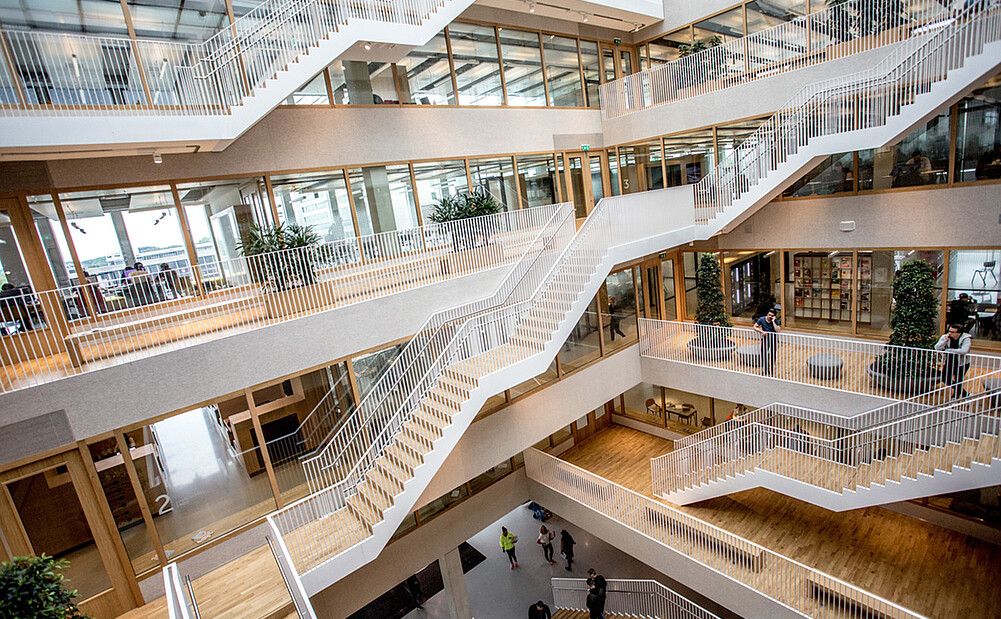
New dates will be announced soon.
Please contact our Associate Executive Director ECDA Marcel van Oosterhout for more information.
The fee for each participants for the eight-day programme is € 8,500 (excl. VAT). This includes course materials, access to the e-learning platform, individual coaching during the programme, lunches, three dinners and social activities. Discounted rates apply and according to the number of participants per organisation. With each partipant per team, there is a discount of €500. For teams with more than five participants, each additional participant over five participants is € 7,000 (excl. VAT).
Cancellation notices must be received by email: mbarathe@rsm.nl. The following cancellation fees apply:
The programme is offered as on-line programme. Some of the last modules might be offered at Rotterdam School of Management, Erasmus University, Burgemeester Oudlaan 50, Rotterdam.
Rotterdam School of Management, Erasmus University (RSM) offers a dynamic learning environment for professionals looking for new skills and knowledge in business and management education.
This programme takes place in Bayle building on the Woudestein Campus of Erasmus University Rotterdam, just 15 minutes by public transport from Rotterdam city centre. Our modern and lively campus has innovative study facilities, sustainable design, and calming green spaces.
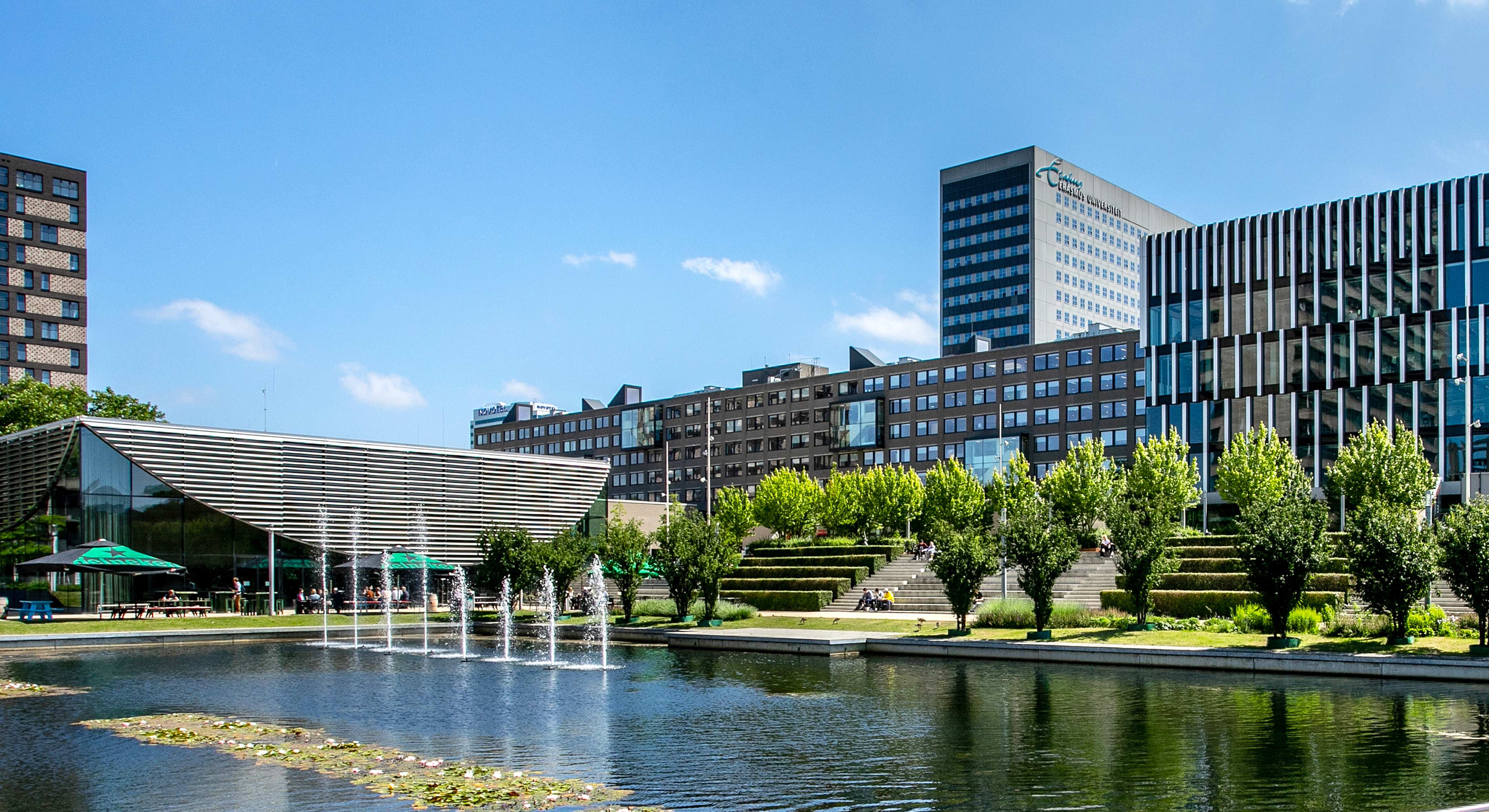
Most programmes start at 09:00. Finishing times are different for each programme. There’s also an approximate schedule in each programme’s brochure and on its webpages. When you register for a programme you will be given access to Canvas, our online learning system, and the full schedule is in Canvas. Your programme manager will hand out a detailed schedule on the first day of your programme.
Class sizes are usually between 12 to 24 people, but it does depend on the programme. We aim for a balance between allowing capacity to guarantee individual attention, and achieving a good group dynamic and networking opportunities.
Yes. Alumni from RSM and Erasmus University Rotterdam receive a 25 per cent discount. RSM alumni are those who have completed either a Bachelor of Science, Master of Science, PhD or at least one executive education programme of more than 40 hours duration. Participants of open programmes of less than 40 hours do not receive a discount. Companies sponsoring several participants may also be offered a special price.
These programmes are excluded from this alumni discount:
Programme fees include tuition, programme materials, plus lunch and refreshments throughout the programme. Hotel accommodation is not included, unless mentioned otherwise in the programme information.
If you require hotel accommodation, we recommend the Novotel Rotterdam Brainpark Hotel and the Bilderberg Park Hotel. Both hotels are located in Rotterdam, accessible to the university, and participants can benefit from special rates.
Please note that due to high demand, we advise you to book your hotel stay for any program as early as possible with a flexible rate.
Our general terms and conditions apply when you register for an open programme. Please review them to learn more about our policies for cancellation, deferral and substitution.
If you have more general questions, we recommend you explore our more in-depth FAQs page. If you are looking for personal advice, then please contact one of our advisors using the contact form below.
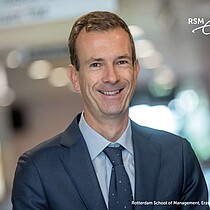
Associate Executive Director ECDA